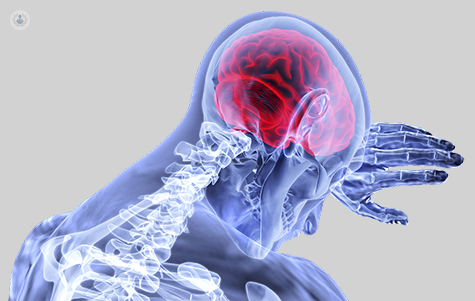

What is a stroke?
Stroke is the sudden interruption of blood flow to the brain, depriving the brain cells of oxygen which causes the brain cells to rapidly die. Stroke is a serious medical condition and should be treated as an emergency as earlier action can help reduce the amount of damage done to the brain. Depending on where the stroke occurs and how much of the brain is damaged will determine a person’s ability to recover.
The existing types of stroke are Transient Ischemic attack (TIA), ischemic stroke or a haemorrhagic stroke.

What are the symptoms of a stroke?
The key symptoms of stroke can be remembered with the acronym ‘F.A.S.T’:
- Face – one side of the face may have drooped down and they are unable to smile.
- Arms – they might not be able to lift both arms, or complain of numbness in one arm.
- Speech – speech can be slurred, or they might not be able to speak at all.
- Time – if any of the above symptoms are witnessed you must call an ambulance and seek immediate medical attention.
Additional symptoms include:
- Difficulty swallowing (dysphagia)
- Paralysis of one side of the body
- Blurred vision
- Confusion
- Loss of balance
- A sudden, severe headache
- Loss of consciousness
What causes a stroke?
There are three types of stroke:
- Ischemic stroke – blood supply is blocked due to a blood clot disrupting the flow of blood to the brain (thrombotic stroke). Blood flow may also be blocked by fatty deposits and cholesterol (embolic stroke).
- Haemorrhagic stroke – a damaged or weakened blood vessel that supplies the brain ruptures. This is usually due to either high blood pressure or an aneurysm (weakness in the blood vessel wall).
- Transient ischemic attack (TIA) – these are known as mini-strokes as blood supply to the brain is only stopped temporarily. They can be a warning sign of an eventual major stroke and should be treated urgently.
The following are risk factors for having a stroke:
- Poorly managed diabetes
- High cholesterol
- Obesity
- Hypertension (high blood pressure)
- Smoking and excessive alcohol consumption
- Atrial fibrillation (irregular heartbeat)
- Coronary artery disease (narrowing of arteries due to plaque build-up)
- Older age
Can a stroke be prevented?
As with other pathologies, the prevention of stroke can be achieved by eliminating everyday life risk factors such as smoking, excessive alcohol consumption, high blood pressure, diabetes, high cholesterol levels, obesity and certain diseases such as atrial fibrillation and coronary artery disease.
What is the treatment for a stroke?
Treatment for a stroke will depend on the type of stroke suffered and which part of the brain was affected. Medications can be administered that help dissolve blood clots and reduce cholesterol and blood pressure. Surgery to remove blood clots might also be recommended or surgery to address brain swelling and cerebral bleeding resulting from a haemorrhagic stroke.
